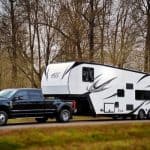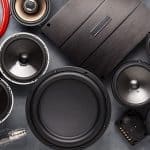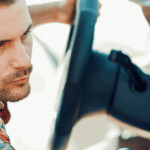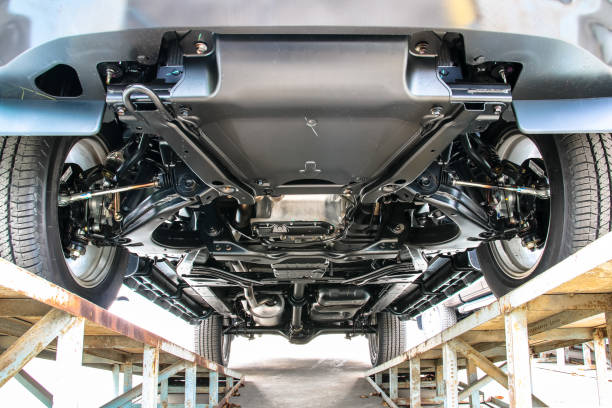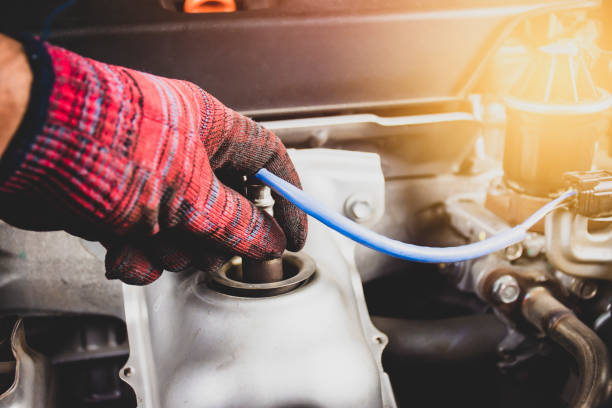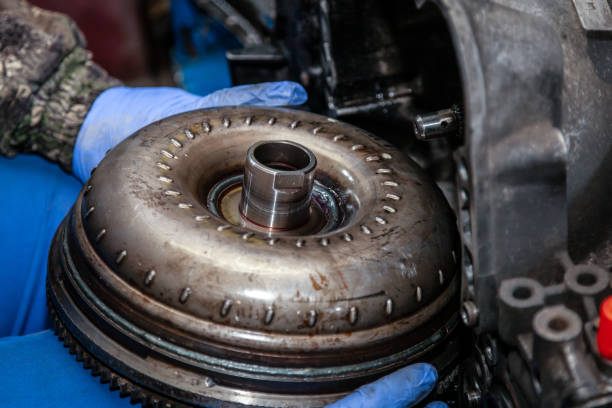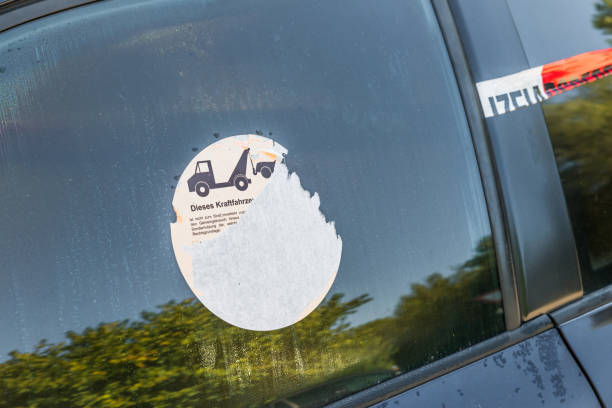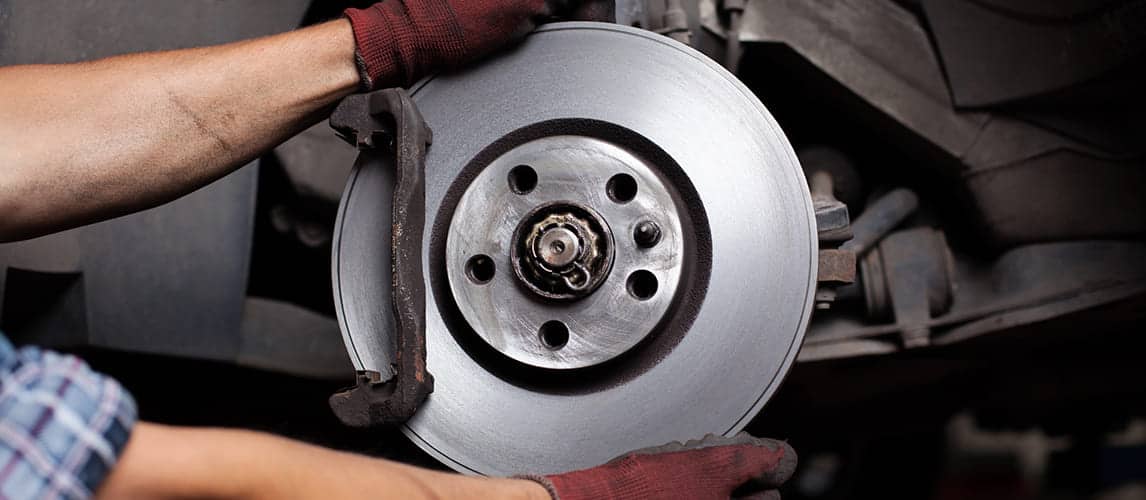
Brakes are one of the most important parts of the vehicle, and it goes without saying that their functionality is crucial and critical.
That’s why you need to pay special attention when your vehicle is trying to tell you that something is wrong. Agrinding, squealing or scraping noise when brakingis the most common warning sign that your brakes are acting up.
While most noises indicate that it’s time to change your brake pads – what are you doing if grinding noise when braking but pads are fine?
We’ll break down some of the common reasons your brakes might be grinding, even if your pads still have plenty of life on them.
Start by Taking a Look
Brake systems are surprisingly simple. If you hear grinding noises when you’re braking-take off the wheels and calipers and see what you’re dealing with.
It’s exactly what the mechanic will do to find out what is going on. The only difference is that they’re going to charge you a top dollar to do it.
Poor Quality Brake Pads
If you’ve recently replaced your brakes and you’re still hearing a grinding or squealing noise, there’s a good chance that you got ‘served’ low-quality brakes pads. And when you’re using cheap brake pads, there are more potential significant problems to worry about than a little noise.
Cheap pads wear out way faster and offer less braking force than their higher-quality counterparts. If you don’t know what brake pads the mechanic used on your vehicle, you can always ask. However, there really isn’t much you can do if they won’t tell you what they used or if you don’t remember what you installed.
To find out if cheap brake pads are the reason behind the worrying noise, you should rule out any other possible causes. It’s not a rocket-science or something, but it’s just one of the many reasons you should spend the little extra money and get high-quality brake pads whenever you need to replace them.
Faulty Shims
Behind every brake pad is a shim. Every time you replace the pad, you need to replace the shim as well. The shim is where the brake caliper piston pushes against the pad. If the shim is old or extremely rusted, you may hear some noise every time you press on the brakes.
More importantly, it might wear out completely, leading to the piston pushing directly against the brake pad. Your brake pads can’t handle this, and they can wear out and fail prematurely.
Faulty Self-Adjusting Mechanism
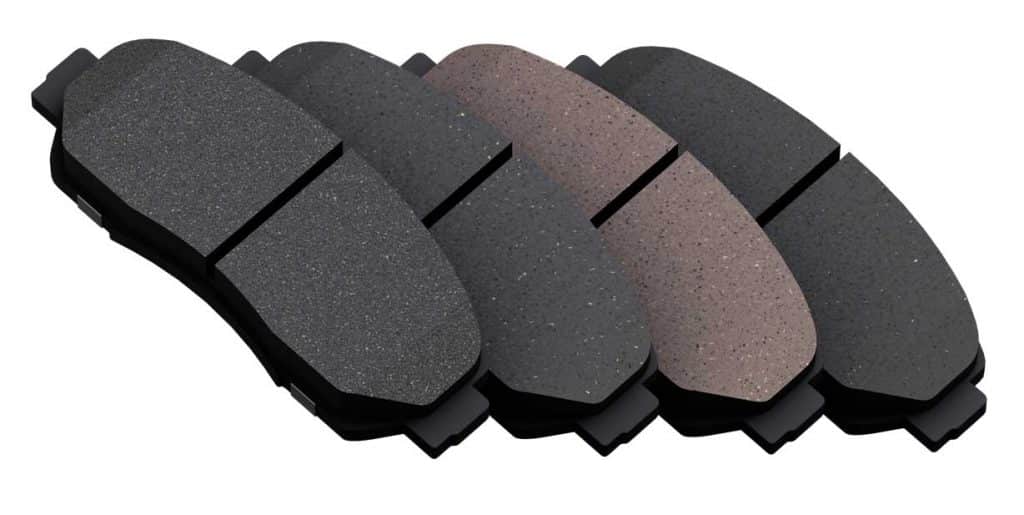
On every brake pad, there is a self-adjusting mechanism that pushes the brake pads against the rotors. If this mechanism is faulty or rubbing against the rotors when it shouldn’t, the result can be a grinding noise whenever you hit the brakes.
To make matters worse, this will keep your brake pads from maintaining their proper distance from the rotors, that can eventually lead to inconsistent braking, which is a significant safety issue.
Brakes and Rotors Mated Improperly
Whenever you replace the brake pads, it’s vital that you either replace the rotors or surface them. Failing to do so may lead to the pads and rotors mating improperly – which means that they will squeak and grind whenever you press the brakes. More importantly, it means you’ll be getting less than ideal braking, which can lead to an accident.
Even if you have brand new rotors and brand-new pads, you need to make sure that they mate correctly after you install them. You’ll need to get your vehicle up to 20 to 25 miles per hour before quickly and evenly applying the brakes. You should do this at least four to five times whenever you install new brake pads to ensure you get an adequate mate.
However, if your brakes are already squeaking and grinding, it’s too late. Once your brake pads have mated, you can’t reverse or fix the process. Even worse than grinding or squealing, your brakes can end up glazing over. If this happens, you won’t get the braking force necessary to stop effectively.
Debris Stuck in Brakes
When you’re driving down the road, all kinds of things can get stuck into the rotors. Occasionally a few pieces of this debris can get jammed by the pads or between the backing plate and the rotor. The easiest way to check is to take off the wheel and brakes and inspect for any potential debris.
Sometimes all you need to do to fix the problem is take the calipers off and reinstall them!
Worn Brake Rotors
People most often replace their brake pads to save a few bucks. As a result, the rotors themselves may have worn out even if the pads are still in good shape. Often old rotors will start to rust, which can lead to excessive noise when you’re braking.
Even if you’re getting the rotors surfaced every time you replace the pads, you can still run into problems. That’s because rotors have a minimum thickness, and every time you surface the rotors, you’re cutting into this thickness.
Combined with the fact that rotors wear down every time you press the brakes, and it’s no surprise that you have to replace them every once in a while!
Rusted Pads or Rotors
If you haven’t been driving your vehicle all that often, the pads or rotors may start to rust over. While this might seem like a significant concern, the rust can be quickly worn off by driving the vehicle.
While a little surface rust on the pads and rotors is no big deal – excessive rust can be a significant problem. Furthermore, even with surface rust, you’ll need to be a little more careful until it’s cleared off. Once the trust is gone and you can see the rotors clearly again, you should be good to go – and the noise should disappear as well.
Loose or Rusted Caliper Bolts
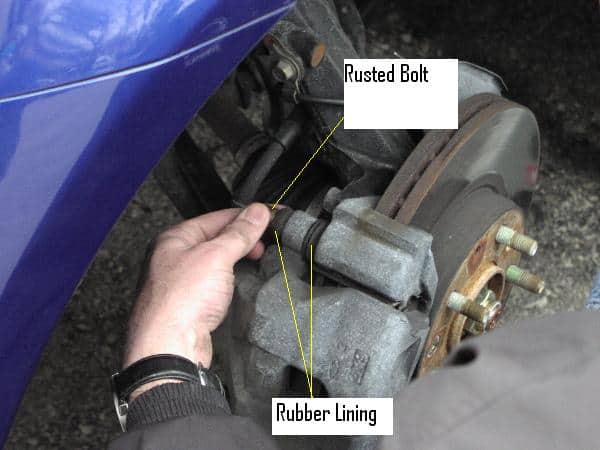
Typical vehicles have all of the braking components held on by four bolts. If any of the bolts back out or aren’t tight enough, the entire brake assembly will shift some when you press on the brakes.
Not only will you be able to feel this when you hit the pedal, but you’ll also hear it. If you suspect that you have loose or rusted caliper bolts, you need to address this issue immediately. Failure to do so can lead to a much bigger problem, like your entire caliper assembly shifting or falling off.
Faulty Wheel Bearings
Wheel bearings do a lot or your vehicle. They keep the wheel’s internal workings working smoothly, allowing you to roll down the road without any concerns. But if you don’t torque the jam nut that holds your wheel bearing correctly, the wheel bearing can start to back out.
Furthermore, if the wheel bearing isn’t properly lubricated, it can start to fall apart. Either option will lead to excessive play in the wheel. While this can manifest itself in various ways, one of the most common things drivers will experience is hearing a grinding noise.
This noise can become significantly louder when you hit the brakes, as everything shifts when you apply more torque to the wheels.
Backing Plate Rubbing
Behind every brake rotor, there is a backing plate. This plate helps to protect your rotors and brakes from debris on the road. But every once in a while, something large enough can come up and hit the backing plate to cause it to bend.
If it ends up getting bent, it can rub against the rotors and cause a loud grinding or squealing noise when you drive. When this happens, all you need to do to fix the problem is gently bend the backing plate back into place.
Don’t Discount the Rotors.
We know you’ve already checked them – but have you checked all of them? Just because one set of brake pads is fine doesn’t mean that they all are. Ideally, you should check all four sets of brake pads before moving on and trying to diagnose a deeper problem.
Worn brake pads are the number one cause of grinding and squealing noises while braking, and it’s not even close. Don’t rule them out until you’re 100 percent sure that all four sets have plenty of life on them.
Summary
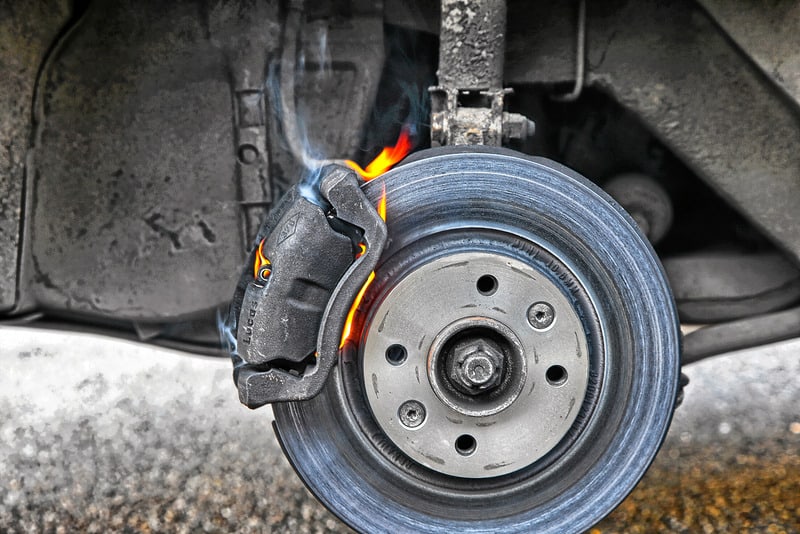
When it comes to your brakes- this isn’t a component that you can ignore.You need to take every warning sign seriously. While the most common problem you’ll come across is worn brake pads, you need to know what to do if that’s not the problem.
Knowing what to do can save you a ton of money instead of taking it to a mechanic, but if you can’t figure it out, you need to have a professional look at it.
While it might be a little more money than you want to spend right now, failure to make any repairs promptly can end up costing you even more!

